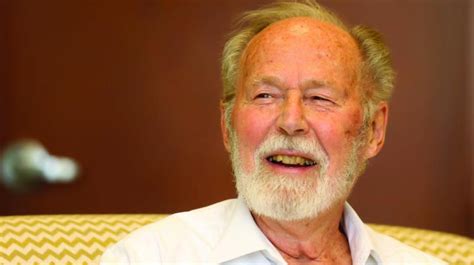A Quote by Mao Zedong
There is no such thing as abstract Marxism, only concrete Marxism... The Sinofication of Marxism - that is, making certain that its manifestation is imbued with Chinese peculiarities - is a problem that must be understood and solved by the party without delay.
Related Quotes
Some liberation theologians maintain that they are not influenced by Marxist philosophy at all. In this case it is necessary to discern whether they say this for tactical reasons, so as not to be compromised politically or whether they are really convinced that Marxism doesn't influence them in any way. I personally think that it is not possible to evade the influence of Marxism, as we cannot commit ourselves to the revolutionary struggle without drawing support from the conclusions of scientific socialism.
It is not the truth of Marxism that explains the willingness of intellectuals to believe it, but the power that it confers on intellectuals, in their attempts to control the world. And since, as Swift says, it is futile to reason someone out of a thing that he was not reasoned into, we can conclude that Marxism owes its remarkable power to survive every criticism to the fact that it is not a truth-directed but a power-directed system of thought.
So Marxism, Freudianism: any one of these things I think is an irrational cult. They're theology, so they're whatever you think of theology; I don't think much of it. In fact, in my view that's exactly the right analogy: notions like Marxism and Freudianism belong to the history of organized religion.
The Marxist critique is only a critique of capital, a critique coming from the heart of the middle and petit bourgeois classes, for which Marxism has served for a century as a latent ideology.... The Marxist seeks a good use of economy. Marxism is therefore only a limited petit bourgeois critique, one more step in the banalization of life toward the "good use" of the social!
On the conservative side, today's libertarianism is far more dogmatic and devoid of qualification than the liberalism of Adam Smith or J.S. Mill. Like Marxism, libertarianism is a utopian worldview based on an economic-determinist vision of history. Unlike Marxism, libertarianism is highly specific in its predictions about the transition to the utopian world order, rendering it vulnerable to fact.
Truth is found neither in Marxism nor in traditional capitalism. Each represents a partial truth. Historically capitalism failed to see the truth in collective enterprise, and Marxism failed to see the truth in individual enterprise. Nineteenth century capitalism failed to see that life is social and Marxism failed and still fails to see that life is individual and personal. The Kingdom of God is neither the thesis of individual enterprise nor the antithesis of collective enterprise, but a synthesis which reconciles the truths of both.
The fundamental purpose of Marxism is the total control of a population under the belief that individualism and free markets lead to great disparities and inequalities and injustices and unfairness. Now, this is the outward appeal. Marxism is evil, and Marx knew it, but the appeal that seduces people is its justice and equality and fairness. What they don't tell you is the equality is spread equally to the point everybody's miserably equal and miserably the same.





































